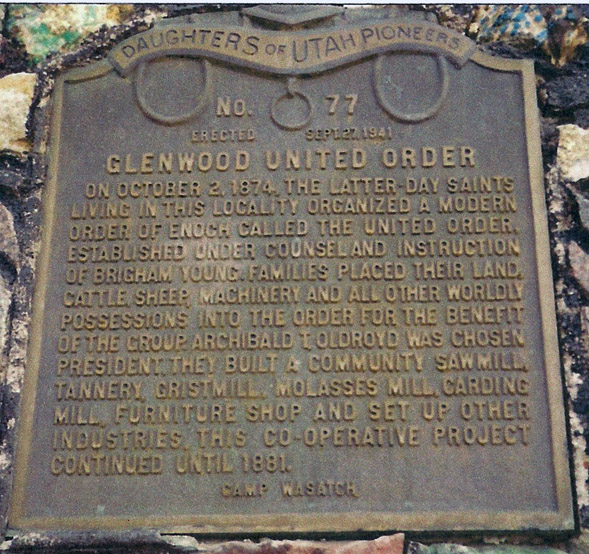Category: Church History
-
Historians Saying Interesting Things … About Mormonism
Between the new polygamy essays at LDS.org and the new religion curriculum at the BYUs, there has been a lot to argue about this week. Let’s try something a little friendlier: The Mormon History Association’s Tanner Lectures: The First Twenty Years (U. of Illinois Press, 2006). It has been on my shelf a couple of…
-
Practical Apologetics: The First Vision
It’s not surprising that the First Vision has become one of the faith issues that gets kicked around the Internet these days. Visions are personal experiences of one particular person, so little effort or justification is needed for a third party to doubt or disbelieve another’s account of a vision. Most Mormons find it easy…
-
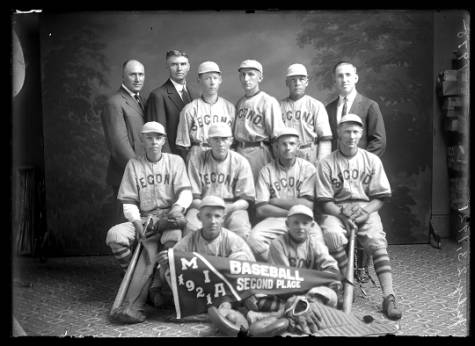
A Baseball Team in Every Ward
In the late 16th century Henry IV of France expressed a desire that everyone in his realm would “have a chicken in his pot every Sunday.” That idea showed up again in Herbert Hoover’s promise of a “chicken in every pot”—the politician’s promise of prosperity. I’m not sure whether “a baseball team in every ward”…
-
Stirring Up the Saints: The Mormon Reformation
So I read Bigler and Bagley’s The Mormon Rebellion: America’s First Civil War, 1857-58 (U. of Oklahoma Press, 2011) last week. It will certainly convince you that the Utah Territory of the 1850s was the Wild Wild West as much as it was Zion. Checking the footnotes, it seems like the narrative is built primarily…
-
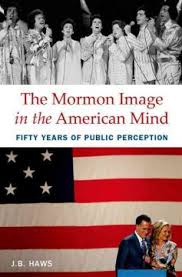
Mormonism: The Last Fifty Years
Over the holidays I read The Mormon Image in the American Mind: Fifty Years of Public Perception (OUP, 2013), by J. B. Haws, a BYU history prof. Technically, the book is a study of how the LDS Church and Mormonism in general is perceived by the American public, and the author presents survey data throughout…
-
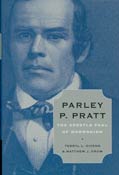
The Life and Times of Parley P. Pratt
I recently finished reading Parley P. Pratt: The Apostle Paul of Mormonism (OUP, 2011), by Terryl L. Givens and Matthew J. Grow. Most Mormons know Pratt by name from reading the Doctrine and Covenants. A few Mormons have read Pratt’s autobiography, which gives some idea of the extent of his missionary travels, but provides little…
-
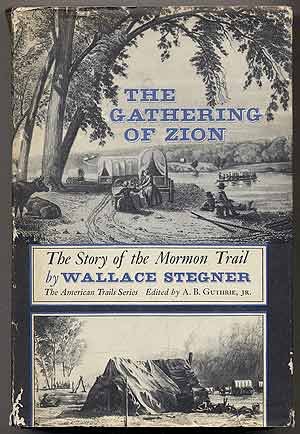
Not quite “Faith in Every Footstep”
It’s no surprise that my favorite book about the pioneers was not written by a Mormon.
-
Can Books Cause Problems? Reflections on Brigham Young: Pioneer Prophet
I recently did a quick read of John G. Turner’s Brigham Young: Pioneer Prophet and posted notes here. Here is my one-sentence summary: “Turner gives a balanced if candid portrayal of Brigham, one that mainstream Mormons should be able to read without serious difficulties.” But not everyone agrees. Some very bright people think the book…
-
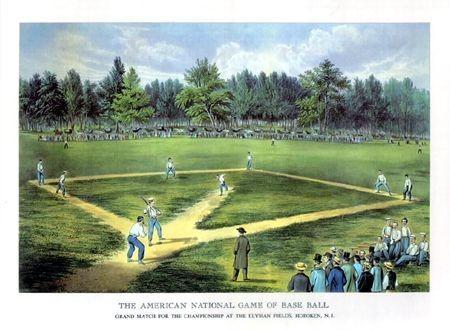
Joseph Smith and Baseball: The Evidence
“In the 1830s, on the western frontier of Missouri, ball was the favorite sport of Joseph Smith, founder of a new religious sect called the Mormons[1. Burns, Ken, and Lynn Novick. Baseball: A Film by Ken Burns. PBS, 2010.].” A couple of years ago I received as a Christmas present the Baseball documentary by Ken…
-

Moroni Torgan and the Church in Fortaleza, Brazil (part 3)
[The third part of a translation of an article written by Emanuel Santana and published on the Brazilian group blog, Vozes Mórmons. The article raises many questions about politics and the Church—questions we are familiary with in the U.S. and perhaps Canada, but which are new territory for Mormons in Brazil and elsewhere around the…
-

Moroni Torgan and the Church in Fortaleza, Brazil (part 2)
[The second part of a translation of an article written by Emanuel Santana and published on the Brazilian group blog, Vozes Mórmons. The article raises many questions about politics and the Church—questions we are familiary with in the U.S. and perhaps Canada, but which are new territory for Mormons in Brazil and elsewhere around the…
-

Moroni Torgan and the Church in Fortaleza, Brazil (part 1)
The following is a translation from an article written by Emanuel Santana and published on the Brazilian group blog, Vozes Mórmons. I have divided it into three parts because the post is so long and raises so many questions about politics and the Church—things that strike me as repeatedly-covered issues in the U.S. and perhaps…
-
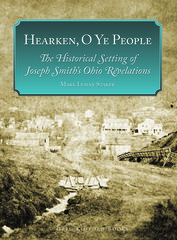
The Kirtland Church: A Review of Hearken O Ye People
I received my review copy of Hearken, O Ye People at work; I opened it and began to read on the El heading home. And, from page 1 (or, actually, page xvii), my jaw dropped. Staker started his book with an almost-15-page chronology of Kirtland, beginning in May 1796 as a group begins to survey…
-
Nothing to Apologize For (Part II)
[Times & Seasons welcomes the second in a pair of posts from Ralph Hancock this week, who previously guested with us in 2010] I argued in Part I that the move from “apologetics” to “Mormon Studies” requires a bracketing of truth claims that may serve legitimate scholarly purposes, but that carries with it certain significant risks. The New…
-
Nothing to Apologize For (Part I)
[Times & Seasons welcomes the first in a pair of posts from Ralph Hancock this week, who previously guested with us in 2010] The recent unpleasantness at BYU’s Maxwell Institute has, the reader will have noticed, triggered much comment on the internet, including celebrations in some quarters over the supposed demise or at least eclipse…
-
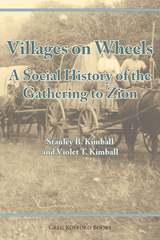
O Pioneer! Book Review of Villages on Wheels
The 4th of July is a week of intense patriotic celebration in Provo. Freedom Festival is the biggest party of the year here. People go all out with block parties, fireworks, parades, races, and art contests. We end the week exhausted. As a relative newcomer to Utah Valley, I’ve wondered why is Independence Day is…
-
Guest Post: Why I Find Developments at the Maxwell Institute Concerning
[A guest post by Professor David Earl Bohn, retired professor of political philosophy at Brigham Young University] Recently, the Maxwell Institute announced a significant change of course on its website—one that re-directs the Institute’s focus away from apologetics and Mormon-centered research and toward a more generic emphasis on religious scholarship. The “bloggernacle” had actually been…
-

Sent Back
In the latter half of the 19th century, the principle role that New York City filled for Mormonism was as a transit point—more than 75,000 Mormon converts entered the United States through New York City during those years while several thousand missionaries sailed for Europe from New York’s port. But beginning with the Page Act…
-
Adventures in Family History, part 2
One Sunday evening, several months ago, I was playing around on FamilySearch, clicking back through my father, his father, his mother (or something like that), etc. After twists and turns—twists and turns I recorded so that I could get back there again—I discovered that I have ancestors from Jersey.[fn1] No, not that Jersey, the one famous…
-
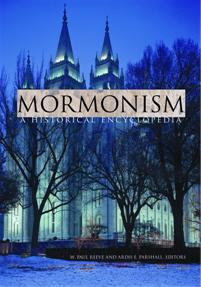
Review: Mormonism: A Historical Encyclopedia
It is published as a reference work, but you can read it like a book, albeit a book of essays: Mormonism: A Historical Encyclopedia (ABC-CLIO, 2010; publisher’s page), edited by W. Paul Reeve and Ardis E. Parshall. Listing at $85 ($68 on Kindle), it might not find its way onto your bookshelf until a trade…
-
![All History is Local: A Review of Tiki and Temple by Marjorie Newton [minor update]](https://timesandseasons.org/wp-content/uploads/2012/03/Newton__Tiki.jpg)
All History is Local: A Review of Tiki and Temple by Marjorie Newton [minor update]
Newton, Marjorie. Tiki and Temple: The Mormon Mission in New Zealand, 1854–1958. Draper, UT: Greg Kofford Books, 2012. Paperback. 343 pages. ISBN: 978-1-58958-1210. $ 29.95. Former Speaker of the U. S. House of Representatives, “Tip” O’Neill, is well known for saying All politics is local. By that he meant that voters choose who they support…
-
Snow, Citizens, and Stewards
It has recently been announced that Steven E. Snow will replace Marlin K. Jensen as the new Church historian. Elder Jensen has been a wonderful historian for our church, bringing both compassion and honesty to the work.I expect this good work will continue under Elder Snow’s direction. I am curious to see what his areas of…
-
Boston’s Mormon women’s organization, 1844
Nauvoo had its Relief Society, but the “society of sisters” in Boston was instead the “Sewing and Penny Society,” or so the Church’s New York City newspaper reported. Despite all that the Relief Society has become in the nearly 170 years since it was founded, it apparently only existed in Nauvoo. In other areas, women…
-
Harold Bloom, the Byrds, and Me
About a week ago, James posted a reflection on Harold Bloom’s (frankly awful) New York Times op-ed. Rather than directly responding, though (other than expressing his rightful disappointment), James engaged with Dr. Bloom’s allegation that Mormonism and Protestantism are converging. Though concerned about such a convergence, James ultimately (and rightly, I believe) doesn’t think we’re…
-
Books of Interest to the LDS Nerd
A few of these are forthcoming, a few have appeared recently. I am compelled to read them all, as soon as I can get to them. Now Available Charles Harrel,“This Is My Doctrine”: The Development of Mormon Theology (Kofford Books) “In this first-of-its-kind comprehensive treatment of the development of Mormon theology, Charles Harrell traces the…
-
Regime Change in the LDS Church
I recently finished America’s Three Regimes: A New Political History (OUP, 2007) by Morton Keller, a retired history prof at Brandeis. The author suggests there have been three enduring American political regimes: a deferential-republican regime that lasted from the Revolution until the emergence of true party politics (Whigs and Democrats) during the 1830s; a party-democratic…
-

Peace
Sometimes unintentional mistakes lead to interesting lines of thought. A few weeks ago I misheard a speaker in an LDS meeting. The speaker was quoting John 14:27, and either because of the speaker’s mispronunciation or my imperfect hearing, I heard the word “live” instead of the word “leave.” This lead me to think about what…
-
Challenges of Church History
Just finished A Brief History of History: Great Historians and the Epic Quest to Explain the Past (The Lyons Press, 2008) by Colin Wells. It is a quick review of all those names you have heard a time or two (Thucydides, Tacitus, Guicciardini, Ranke, Burckhardt, Turner, Braudel, etc.) woven together into a narrative. Favorite quote:…
-

Once upon a time on earth: the Church in a changing world
In debates over controversial religious issues, one often encounters a certain kind of argument from history, a sort of “once upon a time” argument. Once upon a time, it’s argued, the Church considered a given practice or belief, from witchcraft to usury to the heliocentric cosmos, to be immoral, unbiblical or otherwise forbidden. The particular…

